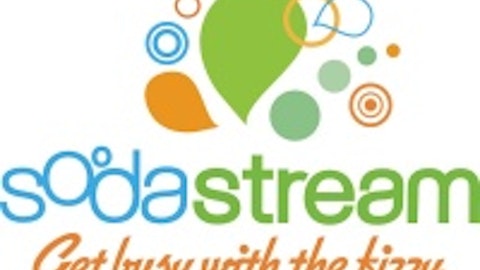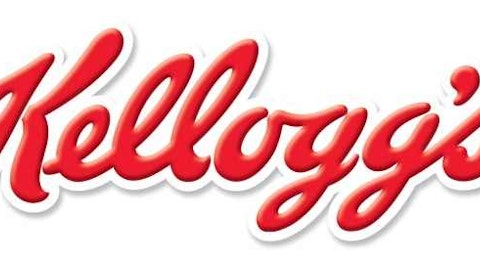The drumbeat of controversy surrounding diet soda is beating once again, and this time critics are louder than ever. Earlier this year a series of studies compared the health risks of diet soda to those of serious illegal drugs and now more shocking information is coming out.

What impact will this have on your money?
Diet Soda Danger!
As I sat to write this post, the local (Chicago) Fox News was beginning its 5pm show. I had the TV on for background noise and, in a strange twist of irony, one of the leading headlines for the nightly news was “Diet Soda Danger: why low calorie drinks may be harming your health.” I had to chuckle for a moment at the irony, the sheer hype, and fear mongering. But the truth is that when one of our stocks finds itself in the cross-hairs of bad press, as investors we have two choices.
1. Get defensive: A natural reaction many foolish (lowercase) investors have when bad press abounds is to be “defensive” and emotional. They lash out on message boards, insult people who disagree with them, and try to convince the world that the hype is untrue.
2. Get defensive: Your other option is to investigate, determine what’s real and what the risk is, and get defensive with your portfolio. Diversify, double down, or sell (if necessary) depending on what the actual long-term risks to your portfolio are.
In any business venture, being emotional costs you money; so I probably don’t need to tell you that number two is the right approach.
Here are the risks, and the right moves to make.
Diversification Rules
As I assess the hype surrounding the “dangers of diet soda,” I have to think that fast-growing Dr Pepper Snapple Group Inc. (NYSE:DPS) is the stock most likely to be at risk. This may seem a bit off given the popularity of Diet Coke, and yes Diet Coke is the number one diet soda in the world. Actually, just last year, Diet Coke overtook regular Pepsi as the second highest selling soda brand in the world–period. But, while The Coca-Cola Company (NYSE:KO) relies on Diet Coke for 15% of its revenues, 70% of its business comes from non-carbonated beverages.
It may surprise you that many “healthy” drink brands like Vitamin Water, Smart Water, and Odwalla are now a part of the The Coca-Cola Company (NYSE:KO) family. The Coca-Cola Company (NYSE:KO) has acquired them in recent years, in preparation for a more health-conscious consumer environment. So while people may stop drinking Diet Coke, they won’t stop buying drinks altogether.
Every dollar that Vitamin Water steals away from Diet Coke is still a dollar that The Coca-Cola Company (NYSE:KO) earns. They own a brand in every single beverage line at this point, from fruit juice, to cola, to water.
Now contrast that with Dr Pepper Snapple Group Inc. (NYSE:DPS). This fast-growing soda maker relies on carbonated beverages for a whopping 75% of its business and has seen strong growth in recent years due to heavy promotion of its Diet Dr Pepper Snapple Group Inc. (NYSE:DPS) brand.
While I do believe that Diet Dr Pepper Snapple Group Inc. (NYSE:DPS) tastes “more like real Dr. Pepper” (so good), I prefer Coke as an investment right now. The advantage is simply in Coke’s ability to win by giving the “illusion of choice,” no matter which direction market trends go.
And what about PepsiCo, Inc. (NYSE:PEP)? Simply put, PepsiCo should come out of this unscathed. Not only does Pepsi already make very little money on Diet Pepsi, but PepsiCo, Inc. (NYSE:PEP) actually gets a majority of its business from Frito Lay and Quaker. The truth is that, through acquisition, PepsiCo has become a food company that dabbles in beverages. Over 60% of PepsiCo’s business comes from food products, while only 20% of comes from soda.
Pepsi’s CEO, Indra Nooyi, has been ahead of this curve for years. Ever since she’s taken the helm at Pepsi she’s made healthy eating, sustainability, and social consciousness a priority.
Sometimes Nooyi’s focus on healthy eating have come at the ire of board members, who felt they were a distraction. But today, with the stock near all-time highs, Nooyi’s vision makes more sense for PepsiCo than ever. For Nooyi’s vision and PepsiCo’s product diversification, I feel their stock has the least risk.
Diet Soda Danger! But not in your portfolio!
It may seem like a bit of a reach to make a buy or sell decision strictly on diet soda health risks (or hype), but what else really separates these stocks?
These stocks are stuck in an investment “cola wars” of sorts; they all resemble each other, as investments. All three stocks trade with P/E multiples between 15-20 with dividend yields near 3%. They also are all trading near all-time highs.
So when you look at one business, in Dr Pepper Snapple Group Inc. (NYSE:DPS), that is so reliant on carbonated beverages, I think you have to be somewhat concerned. Especially when you look at competitors like The Coca-Cola Company (NYSE:KO) and PepsiCo, that have less downside risk to the diet soda scare. Both The Coca-Cola Company (NYSE:KO) and PepsiCo offer more diversification, either through food sales (Pepsi) or through healthy beverage alternatives (Coca-Cola).
That doesn’t mean that diet soda will kill you. It also doesn’t mean that you should sell Dr Pepper Snapple Group Inc. (NYSE:DPS). It simply means that you’re probably a bit better off with PepsiCo and Coca-Cola right now, just while you wait to see how this diet soda drama plays out.
The article Diet Soda Danger! How to Keep the Pop in Your Portfolio originally appeared on Fool.com and is written by Adem Tahiri.
Adem Tahiri has no position in any stocks mentioned. The Motley Fool recommends Coca-Cola and PepsiCo. The Motley Fool owns shares of PepsiCo. Adem is a member of The Motley Fool Blog Network — entries represent the personal opinion of the blogger and are not formally edited.
Copyright © 1995 – 2013 The Motley Fool, LLC. All rights reserved. The Motley Fool has a disclosure policy.





